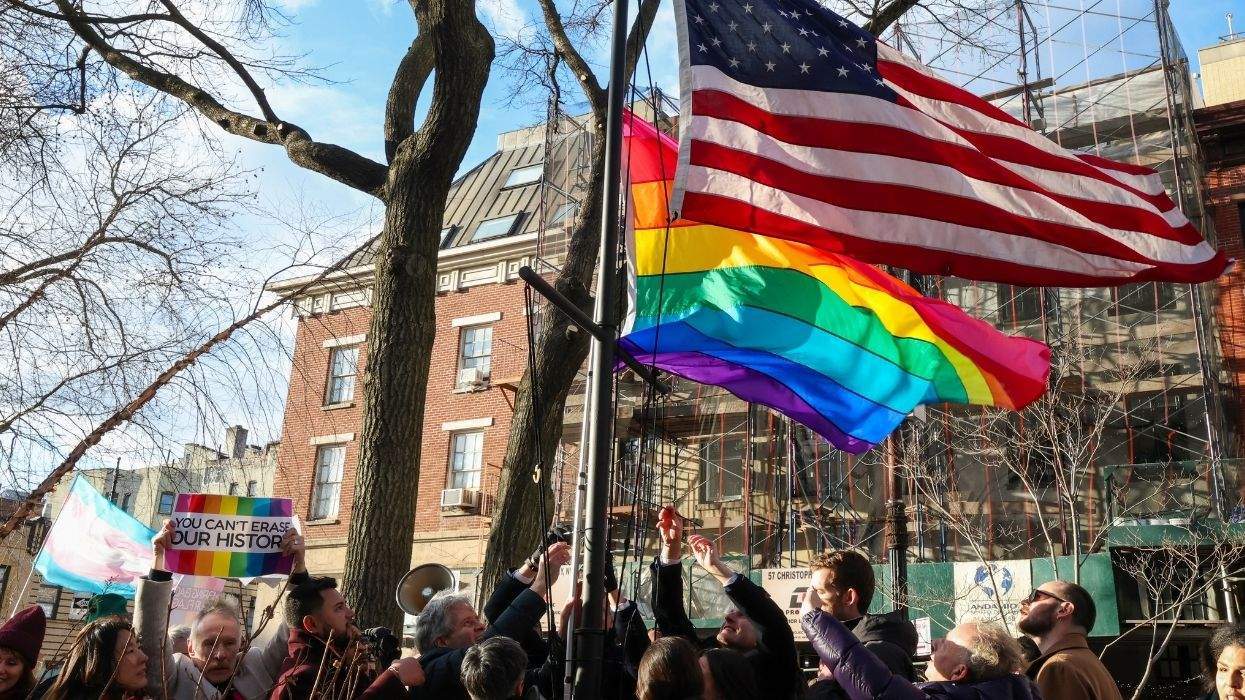WASHINGTON, D.C. -- Going off crowd attendance alone, one would think Saturday was the day a new president had been sworn in to office.
But instead it was millions of men and women descending on Capitol Hill the day after Donald Trump, the businessman and reality TV star, was inaugurated as the 45th president of the United States.
The metro on the way into Washington, D.C., was packed to the limit, and as people made their way into the Women's March on Washington, they chanted phrases such as "This is what democracy looks like!" while carrying creative, homemade signs. There were also many queer marchers who had gay pride and trans pride flags wrapped around them.
Meredith Vezina, a woman who traveled from California for the march, was proud to attend with her sister, who was carrying a sign that read "I love my trans sister." Vezina told The Advocate she was excited to be present because "women's rights are trans rights are human rights."
"I love my trans sister." At the #womensmarchonwashington
A photo posted by The Advocate Magazine (@theadvocatemag) on
Sean Spicer, Trump's press secretary, accused the media Saturday of underreporting the number of people who attended the president's inauguration. The Associated Press called Spicer's statement "wrong."
Noting this, Savannah Brennan, a queer woman who attended the march with a group of friends, said it made the presence of people at the march much more important. "It's important to show up and to be a face and to show that the numbers are against Trump and that he's in the wrong," Brennan told The Advocate.
The signs at the Women's March covered a broad range of topics, such as climate change, sexual harassment, empowerment, immigration, LGBT rights, along with many other issues. This connection between issues is soomething that Hillela Simpson, a queer attendee of the march, believes can unite LGBT people from all different backgrounds as society prepares to move into the new world order of a Trump presidency.
"In some ways the queer community has a benefit of being within every community in America and across the world," Simpson said. "When you have a loved one that comes out to you there's a process of realization that happens that I think can't happen in the same way for other marginalized groups, so I think that in some ways we have privilege that we need to harness to move everyone forward."
Hours after Trump was inaugurated, the White House website was overhauled. References to LGBT rights and climate change were removed from the site, and this left many people afraid that this was preparation for what is to come from the Trump administration.
Abigail Rosen, a queer woman at the march, said when she heard the news, "It makes you feel like less of a citizen because you don't have that protection."
The Women's March faced sharp criticism in the early days of planning because many felt that organizers weren't making a concerted effort to be intersectional and to include women of color in it's leadership.
Maya, who had a sign at the march that read "I am a black, queer, first-generation American woman and I REFUSE TO BE IGNORED," told The Advocate she made her sign because she wanted to remind people that "it's not just white women who are part of this."
"Trump is against every part of my identity, so this is also a reminder to Trump that I'm still here, I'm not going anywhere and every single bit of me is important," she said.















Charlie Kirk DID say stoning gay people was the 'perfect law' — and these other heinous quotes
These are some of his worst comments about LGBTQ+ people made by Charlie Kirk.